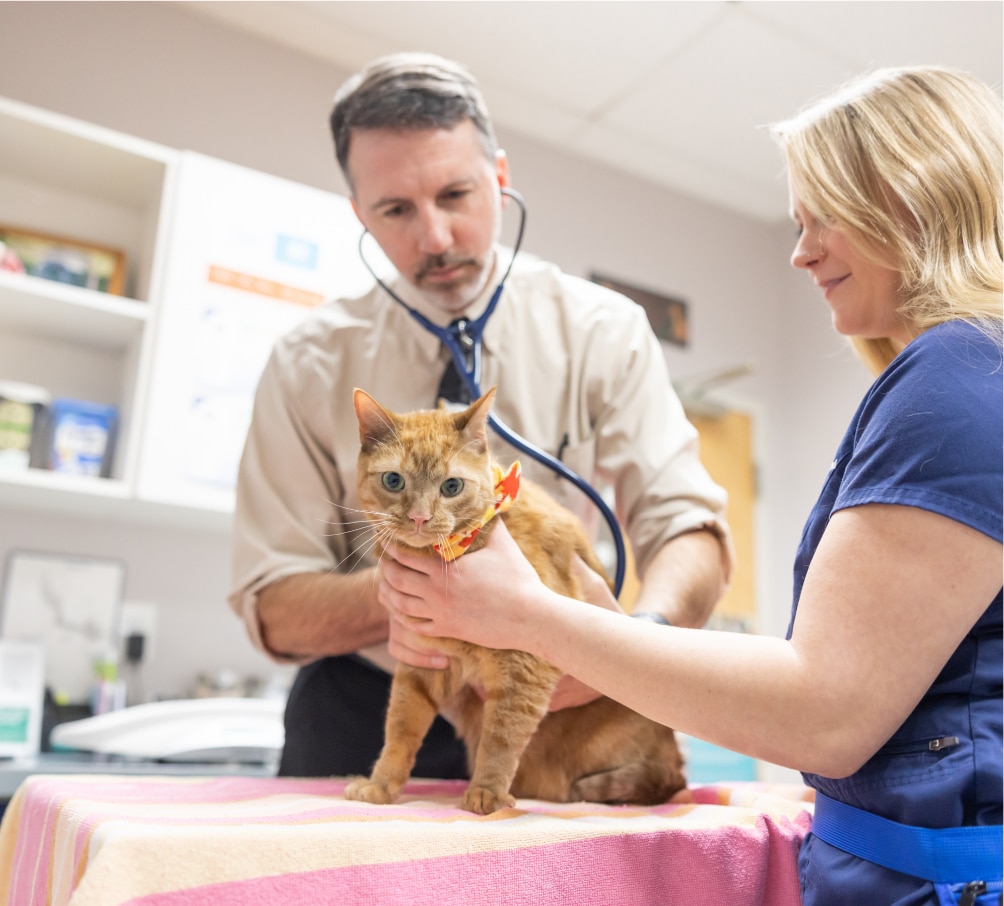In recent years, DNA testing for cats and dogs has increased in popularity.
This process can be a bit expensive for something unnecessary, so if you’re considering this test, you might be wondering if it is worth it.
How Does Pet DNA Testing Work?
First, let’s explore how DNA testing works. A sample is taken either through an oral swabbing or blood draw. Then, it is sent to a laboratory to be analyzed, and in 3 to 4 weeks, the results will be available.
Some DNA tests can be purchased over the counter at pet stores, but your vet can also help you with this process. It is most commonly used for dogs, but DNA tests for cats are becoming more widely available as well.
While veterinary DNA testing is still in its early stages of scientific development, it can provide very useful information to pet owners. Read on to discover three things you can learn from pet DNA testing!
Potential Health Risks
The most important benefit to veterinary DNA testing is the information it can provide regarding certain health risks.
This is because certain diseases, illnesses, and injuries are more common in certain breeds than in others. Knowing these risks can help you provide the healthiest lifestyle for your pet.
For example, if you learn your pet is prone to obesity, you can focus on a slim diet and plenty of exercise. If you learn your pet is prone to certain diseases in their senior years, such as diabetes, you can be on the lookout for warning symptoms as they age.
Being armed with information can help you be better prepared in the event of a health scare.
Breed Traits
Another benefit is knowing the breed of your pet. Verify that your dog is a purebred, or discover the unique mixture of breeds that make him who he is.
This can help you better understand your pet’s behavior and appearance. Find out if he has the genetics of an active, energy-filled breed, or if he is more likely to be a couch potato.
If you are considering breeding your pet, knowing his genetic makeup can help you reproduce the most desirable traits.
Lineage
Finally, a DNA test can reveal the lineage of your pet. Discover where his ancestors come from, where they live now, and whether they are award winners or canine royalty.
Once again, this can be beneficial to a breeding business that is hoping to create the most attractive, most healthy, and highly acclaimed puppies.
You may even be able to connect with other relatives of the dog who have also undergone DNA tests! A puppy family reunion may be in order, and how cute would that be?
Still More to Learn
It is important to know that Genetic Screening is a relatively new and growing endeavor. There is still a lot that we don’t know about how an individual pet’s genes affect how they might develop and what conditions they might be prone to.
We look forward to learning many new things in the years to come, supported by all of the data that is being collected today!
Trusted Veterinary Clinic in Frederick, MD
If you have questions regarding veterinary DNA testing, Old Farm Veterinary Hospital can provide answers. We are a trusted veterinary clinic offering comprehensive animal care services, including wellness visits, vaccines, surgery, boarding, grooming, and more.



